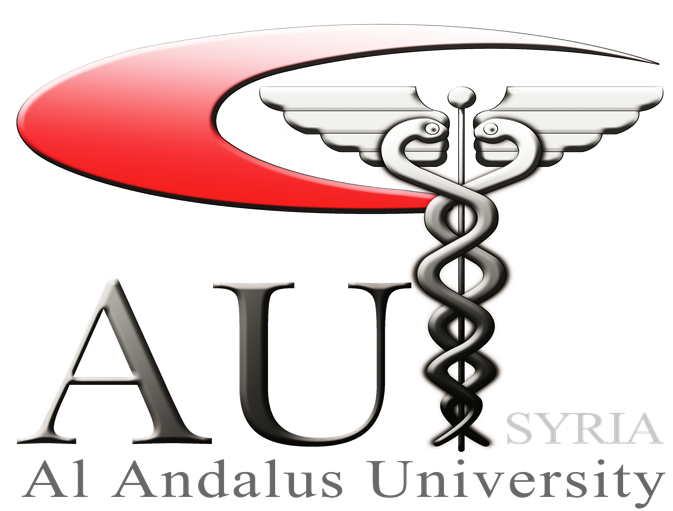Study System in Faculty of Medicine
Al Andalus University for Medical Sciences awards the MD degree upon a proposal from the faculty of medicine.
- The period of study to get an MD is six years divided into two 3-year stages: the pre-clinical stage and the clinical stage.
- The faculty of medicine adopts the semester system according to:
- The first five academic years are divided into two 16-week semesters each.
- Two exam sessions are arranged for annually by the faculty. The schedules of which are determined according to the annual calendar provided by the University Council. One exam session is performed at the end of each semester, and it includes the modules taught during the first and second semesters.
- Fifth-year students who fail up to four modules at the end of the academic year are still allowed to sit a supplementary exam arranged for by the University Council. Students are not allowed to pass to the sixth year unless they pass all modules of the previous years.
- The sixth year is a clinical year in which students attend clinical rotations at the University Teaching Hospital, the Teaching Hospitals of Public Universities in the country and/or Healthcare Training Centres accredited by the Council of Higher Education. Students must be supervised by the Head of Department or a faculty member appointed by the department. The Faculty Council may allow students to attend rotations abroad at approved university hospitals.
- Every sixth-year student has to prepare a graduation project under the supervision of a faculty member.
- Attending classes is mandatory, and the attendance percentage necessary for a student to be allowed to sit an exam, whether theoretical, practical or clinical, for any module is a minimum of 85%. Students who do not achieve this attendance percentage for any module are prevented from sitting the exam of that module.
- When a module has two parts, theoretical and practical, 60% of the module total grades are assigned to the written theoretical exam and 40% to the practical one. The student has to achieve a minimum of 60% of the module total grades to pass, providing that he/she gets at least 40% of the total grades of each part of the module.
- The student who fails any of the modules that includes a practical part may keep his/her marks for that practical part providing that his/her marks do not fall below 40% of the total score of this part. In this case, the student is exempt from reattending the module classes. The student can retake the practical part upon a written request handed to the faculty dean at the beginning of the semester. If this is the case the student loses his/her previous marks and must attend the class as usual.
- The student is transferred from one academic year to the next if they pass all their modules or fail up to a maximum of four modules. The student is deemed “successful” if they pass all the modules (of the current and previous years). “Successful” students are arranged according to their Grade Point Average (GPA). If the student fails up to four modules they are deemed “transferred”.
- A student is eligible to suspend their studies for two consecutive semesters or three non-consecutive semesters during their study period at the university. This suspension period is not counted as part of the maximum period a student allowed to spend at the university. If a student stops attending classes for a whole semester without submitting a suspension application form, he/she fails all the modules of that semester.
- Sixth-year students sit two kinds of exams:
- A practical exam that consists of clinical exam sessions as follows:
- Internal medicine session, which has 7 points. It includes internal diseases (5 points), dermatology (1 point) and laboratory medicine (1 point).
- Paediatrics session, which has 3 points.
- Surgery session, which has 6 points. It includes general surgery and anaesthesia (4 points), otolaryngology (1 point) and ophthalmology (1 point).
- Obstetrics and gynaecology, which has 4 points.
- A theoretical written exam. It is a unified national exam taken by the students of the faculties of medicine of all public and private Syrian universities. The Ministry of Higher Education is responsible for providing the regulations, rules, number of resits and dates of this exam. The questions related to each medical specialty have the same grading system as the practical exam. The Grade Point Average for the sixth year is calculated based on the results of the unified medical exam. If a student fails this exam twice, he/she has to repeat the sixth year.
- A practical exam that consists of clinical exam sessions as follows:
